Someone Asked, “What Changes Have You Noticed Over Time In The Kids You Teach?” And 52 Teachers Delivered
Whether you were a geek or a rebel back in high school, whether you pulled all-nighters studying or partying back in your uni days, the chances are you still remember them like it happened yesterday. You may remember your first teacher and your favorite professor, and let me tell you, they remember you just as well.
But with so much experience of teaching generations after generations of kids and youngsters, they see something we cannot. And that’s how much students have changed with time, and how they differ from their predecessors years ago.
Someone asked an illuminating question “Teachers of Reddit, what changes have you noticed over time in the kids you teach?” which has shed light on some of the most interesting and surprising differences we haven’t thought about before.
Scroll down below to find out what they had to say and make sure to share our previous article with more teachers sharing differences between students then and now.
#1
This is my 13th year teaching as a college art instructor. For me there have been lots of changes, but far and away the biggest is a huge decline in creativity, work ethic, and sense of exploration.There used to be a culture of “studio rats” that would be excited about trying whatever technique they recently learned and would spend countless hours in the studios making all sorts of things. Now? If someone is on the studio, you can bet they are glued to their phone.
The big moment that really made me realize the times were different was I had a student watch me working on a piece and blurted out “I could never do that.” I reassured them they could, I did it! You just have to start somewhere and gradually build up experience and learn techniques. (Etc). Nope. They were convinced they were totally incapable of making something. Heartbreaking really. They just seem so quick to give up, so quick as to never start. They allegedly WANT to be artists, and several have dreams of working for Apple or Pixar, but refuse to make anything. I try as I can to encourage them, but they seem pretty content to just coast into apathy while waiting for Pixar to knock on their door.
Also, I have noticed that socially they are much different as well. I used to have to reign in my classes several times a session as they were excessively talkative. Now, I’m prying conversations out of them, asking questions about current events while they are working on their projects.

Image credits: AllThatsFitToFlam
#2
I’m a school counselor at a middle school. Over the last 5 or so years I’ve noticed that kids know way too much about mental health and incorrectly apply it to themselves. So many of them are diagnosing themselves with anxiety and/or depression when what they might be feeling is within the “normal” realm. Don’t get me wrong - I am seeing an increase in anxiety / depression - but kids are diagnosing themselves all the time including disorders like bipolar disorder, borderline personality disorder, etc. It’s almost like it’s now “cool” to have anxiety, depression or to cut. I’ve also seen kids use the words “gaslight” and “abuse” VERY lightly and it’s starting to lose the meaning of the word.
Image credits: Itslocked_nd09
#3
I teach middle school in Europe and aside from the reduced attention span thing being very evident, the other thing I’ve noticed is that kids are a lot more pessimistic these days: there is so much access to what’s going on in the world (which can obviously be good) but you can tell when kids have been reading too much bad news. As an example, each year I do an exercise where the kids predict what they think will be invented in the next 100 years. They used to predict things like flying cars, space travel, cancer cures etc. Now they predict nuclear weapons, guns and biological warfare...and they’re ELEVEN.Also, fewer kids have hobbies. It used to be that every kid had at least one hobby to share during first day introductions. Now about 3/4 of kids say they don’t have any/don’t know/does tiktok count?
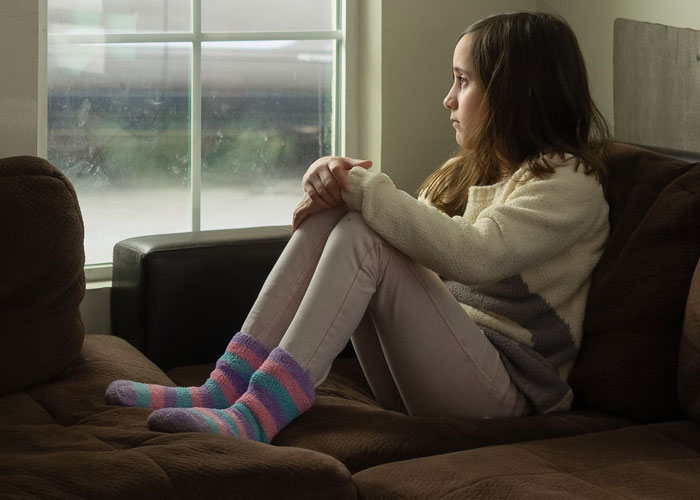
Image credits: clickclickdomino
#4
I hate to be the optimist, but I have noticed the last few years students have started acting far less entitled and are far more self-starting and motivated. It's almost a rejection of the years before them, where students seemed to be getting lazier and more demanding.With this, however, and adding in the break from schooling they had during the pandemic, comes their questioning the need for school at a deeper level. They have become more adept at learning on their own and no longer respect the institution at all, and with good reason.
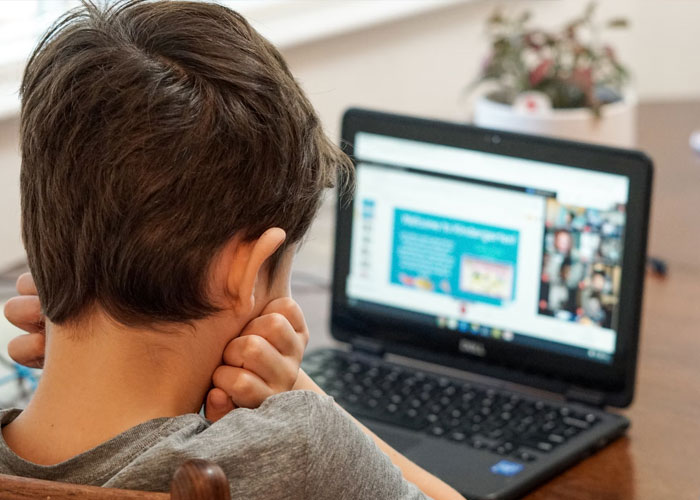
Image credits: SLagonia
#5
Over 20 years in public school teaching here. I’ve noticed kids want instant gratification/rewards. When I began teaching students worked to progress in a subject. Now (I suspect internet is to blame) they see a virtuoso play an instrument on Tik Tok, etc so they pick up a trumpet and expect to be Louis Armstrong. I constantly tell my students “it takes years of work and thousands of hours to achieve at that level. “ Same goes with sports. Little Johnny or Susie is 12 years old and extremely out of shape for their age, but they are the next Tom Brady or Serena Williams.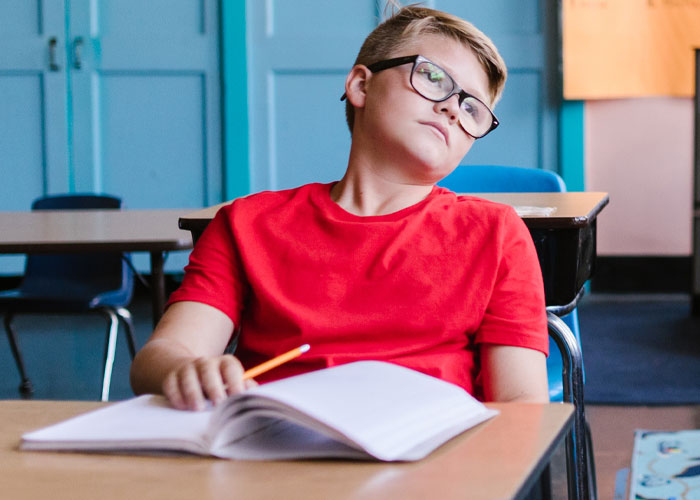
Image credits: Maccamaniac33
#6
I've taught middle school for around ten years, all of them in title 1 schools. I've noticed much more generalized social anxiety post covid. Students simply don't socialize with people who are not in their friend groups. I've always had "shy" students in class, but a much higher number of students do not socialize with others as a general rule now.There are not as many fights among students as there used to be. However, since the fights that do happen are recorded by several kids with devices, it seems to the students that there has been more fighting.
People are way more tolerant of differences in others in the classroom, but bullying stiill happens. This being the case, the number of students who stick up for their friends against bullies or unfair teachers is also on the rise.
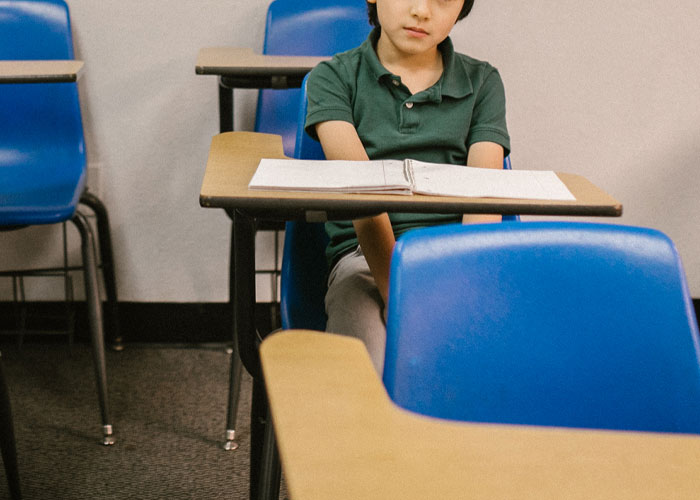
Image credits: rasputinmcgillicuddy
#7
I've taught middle school technology/video journalism for the last 13 years. Kids have gotten way less creative in terms of shooting and editing video. The TikTok/youtuber generation of the last 5+ years has led to more "point and shoot" filming with little else. No creativity in terms of shot composition, writing a script, trying cool editing techniques. Just lazy and uninspired efforts and little drive to learn anything new or try anything that steps outside of their comfort zones. This goes to other artistic/coding projects too we do in Tech, not just videography.
Image credits: Riot55
#8
Kids not so much. Parents are the ones who changed the most. Used to be if a kid was struggling you’d talk to the parents about and the parents would listen to your suggestions. Now if a kid struggles the parents blame you for failing and assume you’re a clueless moron.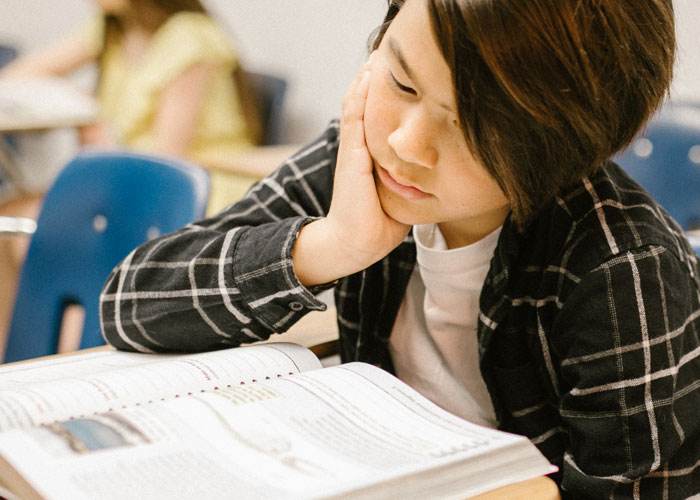
Image credits: Radthereptile
#9
I've been a teacher for 27 years and teach students from 12 to 18. I've noticed that they're becoming less mature with time. Seventh graders are more childish, 10th graders are now what 9th graders were about 20 years ago and so on. Kids are less independent and rely more on adults to help them (for example, when looking up information that matters to them). I also notice that they live more in the present. A lot of them don't know what public holidays there are, and are often surprised when we tell them that school will be out on a certain day. (When I was a student we were well aware of all public holidays and when school would be out.) Finally, since smartphones have become a thing and everyone has one, they have become quieter but less attentive. Instead of talking to each other in class, a lot of them are trying to be on their phone. If you left them alone in class 15 years ago, even older kids would be really noisy. Now they will be mostly quiet and on their phones.This is what I can think of off the top of my head! By the way, I'm in Europe.
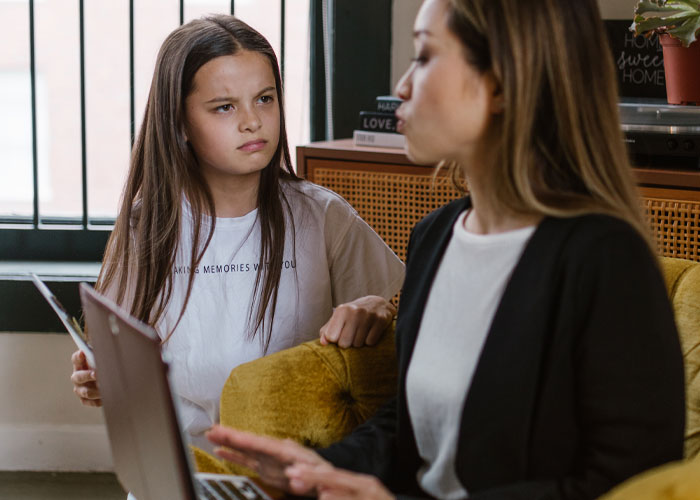
Image credits: Blisolda
#10
Ok, I'll be the contrarian here. I've been teaching high school for 22 years now - and I DON'T see the declining behavior or attention-span trends that other people complain about. Obviously teens are now pretty glued to their electronic devices, but I haven't seen any meaningful big-picture changes in their intellects, processing capacity, or attention span.Most of this thread seems to me like kvetching. Old people complain about the degeneracy of young people - it's what humans do, and this thread seems destined to become a b***h-fest. There's a pretty relevant quote from Roman times (Horace, circa ~20 BCE): “Our sires’ age was worse than our grandsires’. We, their sons, are more worthless than they; so in our turn we shall give the world a progeny yet more corrupt."
What I HAVE seen that's very heartening is increased tolerance. Teens used to throw around "gay" as a generic slur to disparage anything they didn't like. A heavy homework assignment was "gay". The cafeteria food was "gay". And I used to see a lot more casual racism. My current students, who are mostly fairly privileged, are a lot more tolerant and less inclined to disparage groups that don't resemble them.
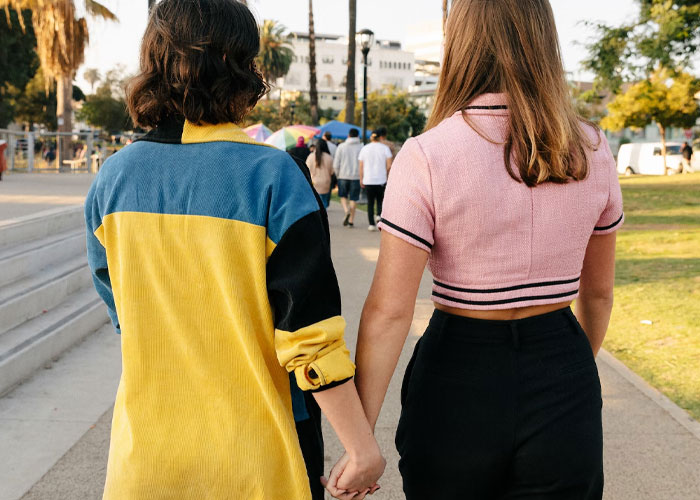
Image credits: WidmanstattenPattern
#11
Less sexism, racism and queerphobia. Kids are more open and willing to advocate for their mental health too.Students are open to discuss enthusiastic consent and pull each other up on it - really they call each other out too on poor behaviour however they are quick to forgive.
They are pretty good are telling teachers about things impacting them or their personal life.
With beauty bloggers and tiktok they smell so much better then a decade ago. I'm glad tiktok is making them shower and wash their clothes with more frequency.
Covid has impacted their resilience however.
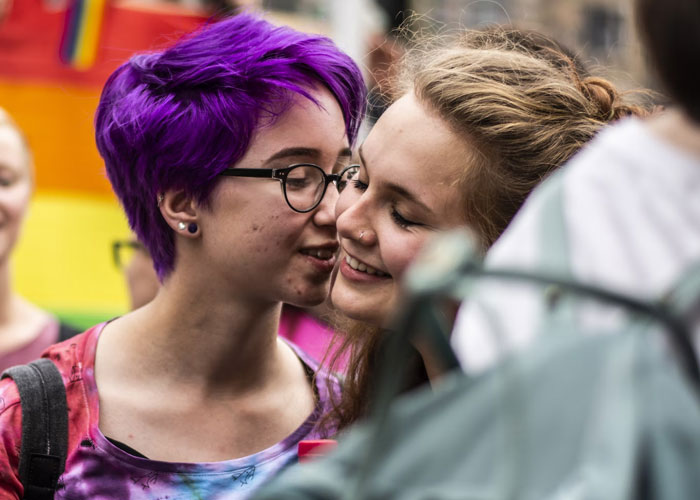
Image credits: paperconservation101
#12
Less able to follow written instructions. I suspect it's because now most of the "how-to" stuff they encounter is in video format rather than books.Poorer mental health.
Less development of personal talents. They just don't do things for fun anymore aside from video games and social media. There is less of them developing into unique people as they all consume the same media diet and do the same things.
Less partying and all of the issues associated with it.

Image credits: toodlesandpoodles
#13
Gonna go against the grain here. I’ve work with 5-11year olds for about 15 years. I find they are kinder, more creative and less bratty than they were when I first started. I haven’t heard a child use “gay” as an insult in years. In fact my students seem to be collectively against bulling.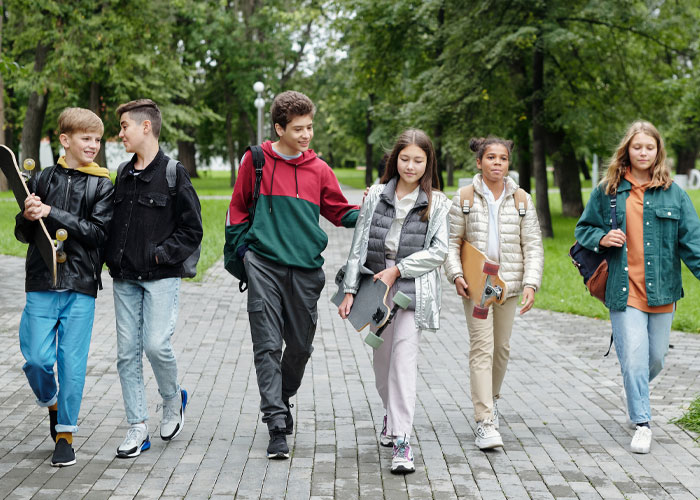
Image credits: loritree
#14
I've been a teacher for 25 years now - in middle school that entire time. In the last few years, the changes have become really noticeable - really since COVID. Students no longer want to try to learn. They want the answers to be given to them for memorization only. Completely risk averse. Last year the lack of social skills was shocking too - things I would expect in preschool that 7th graders were doing (cutting other people's hair, knocking over water bottles on purpose, damaging clothing or other personal items, etc.)I really think the attention span is nil as well. Constant input, little to no creativity, attention span of only a few minutes. Not wanting to think - I had kids asking me how to answer multiple choice questions because you can't draw lines on the answer sheet.
BUT - I also have kids that are more accepting of differences. Racism has decreased so much. We have girls on the football (American) team and boys in cheer. Kids will come up and talk to me about how Joe broke up with his boyfriend Steve and not be wigged out about it. Kindness is actually more than norm than it was 25 years ago and 'gay' is no longer a slur. I've worked with two teachers who were married that were both female and my vice principal was openly gay. Kids had no issues with that! We still have some mean kids, but a larger percentage are kind and the mean ones are not as popular as they once were.

Image credits: mel2mdl
#15
The biggest difference for me is just that my 2020 students are just nicer. They have a great deal of empathy and care for others. My seniors like to hang out with the freshmen and be cool. My girls are all nice to each other instead of being bitchy. My boys are open about their emotions and talk about their feelings freely.And it isn't just the school I work in. Some of my friends have siblings in that age group that are at different schools and I see the same thing in them.
I don't know what sparked the change. My 2010 kids were pretty standard "high school sucks and I hate everyone" kind of kids. Which I totally get, I was probably the same way. But my current students are just so kind it's hard to believe.
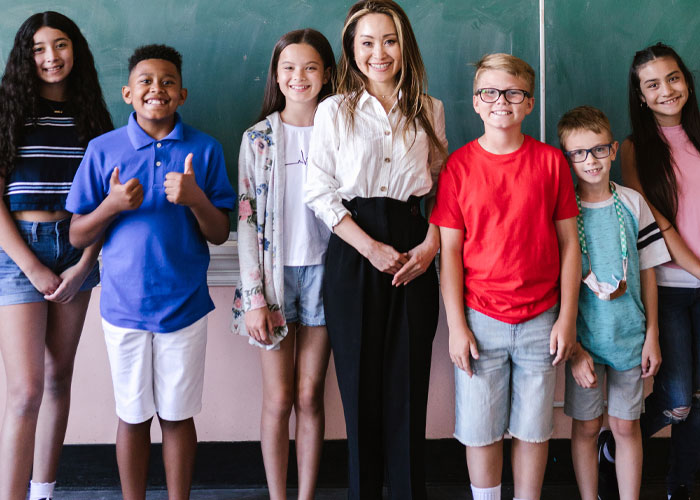
Image credits: SalemScout
#16
I teach second grade. I always have at least one kid who wants to be excused to do a TikTok in the hallway.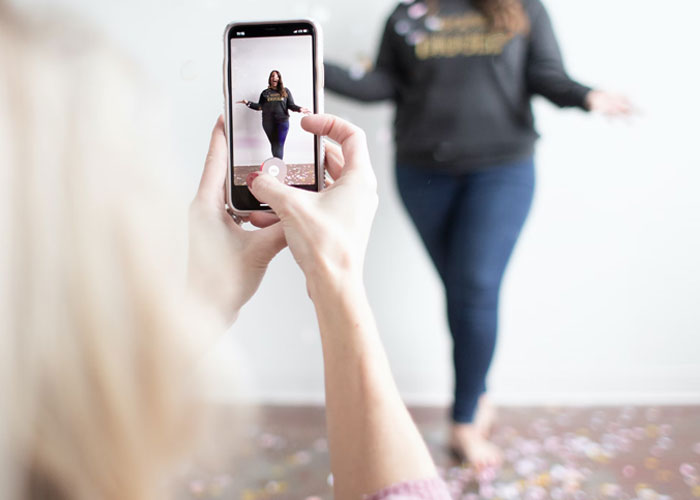
Image credits: RifleShower
#17
Teacher here. 2000: I was a student. Not terribly stressed, moderately aware that someday I'd have to go to college and probably put together a career or something.2010: Newby teacher in a poor town. Students didn't have phones, seemed pretty similar to my memory of high school. They talked about sex and drugs more than I remembered, but my friends assure me I was just a bit naive back in the day.
2020: Why the fuck are my 14 year olds pulling all-nighters, my 15 year olds panicking about their college prospects, and my 16-19 year olds either entering, surviving or recovering from existential crises?
So yeah. Something happened there between 2010 and 2020.
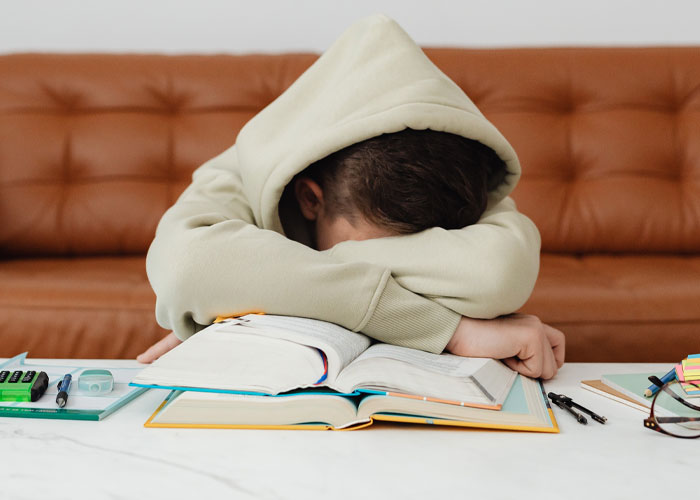
Image credits: anon
#18
Students are not really interested in getting good grades anymore. They even don't want to be average. It is okay to be below average because you pass with a D (or a 4 in Germany). So why work harder?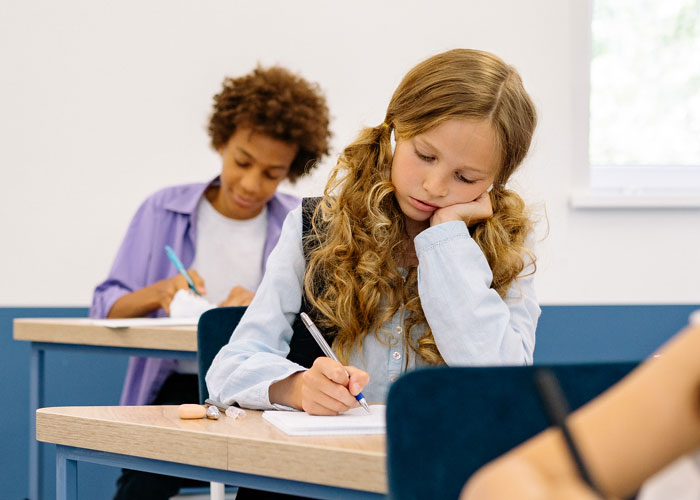
Image credits: wirfmalweg
#19
Daycare/preschool teacher.Kids are not being challenged enough. The gentle parenting trend, while a great idea, normally leads to permissive parenting. In other words, not telling your child “no”. God forbid I tell a child they can’t bite another child. Full blown meltdown. Which isn’t the worst part. I’m used to 3 year olds having meltdowns. It’s when the parents complain to my director about it.
We’re also seeing very easy to hit milestones falling behind. Look I think most milestones are b******t anyway, a kid will get it eventually. The issue becomes when our 4s room has to install a changing table because most of the kids are still in diapers.
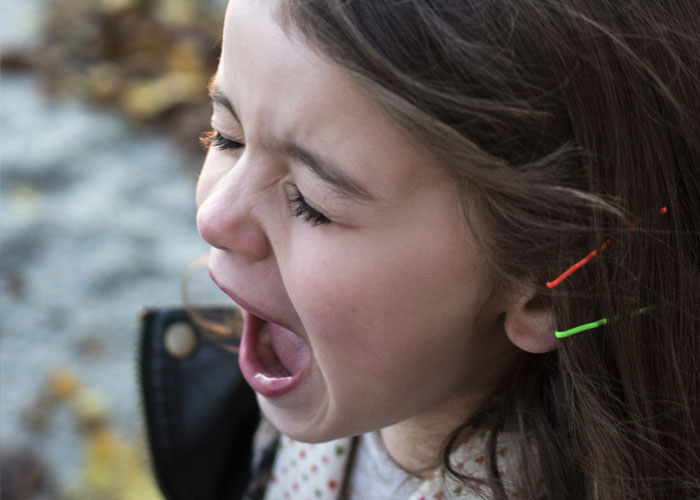
Image credits: anon
#20
Just started my 34th year. An inability to handle failure. Many will have complete meltdowns if someone doesn’t immediately swoop in to “save” them.They’ve been so sheltered by helicoptering, bulldozing, and snowplowing, they don’t realize it’s okay to fail and learn from mistakes.

Image credits: PicklePucker
#21
Geek and nerd culture is growing popular.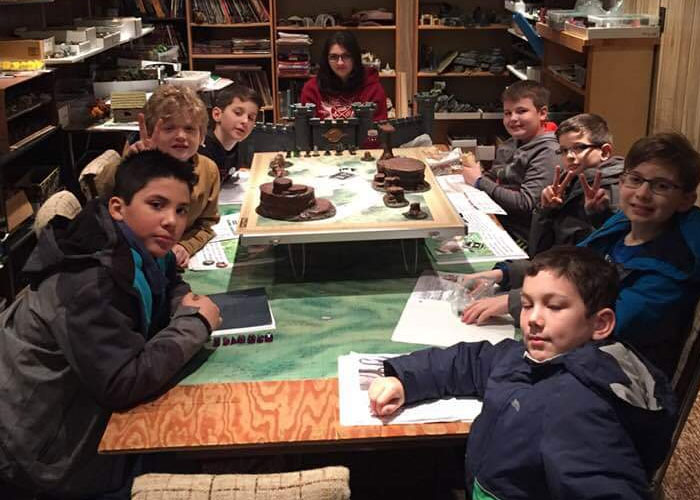
Image credits: piglalopa
#22
They don't curb their language at all around adults.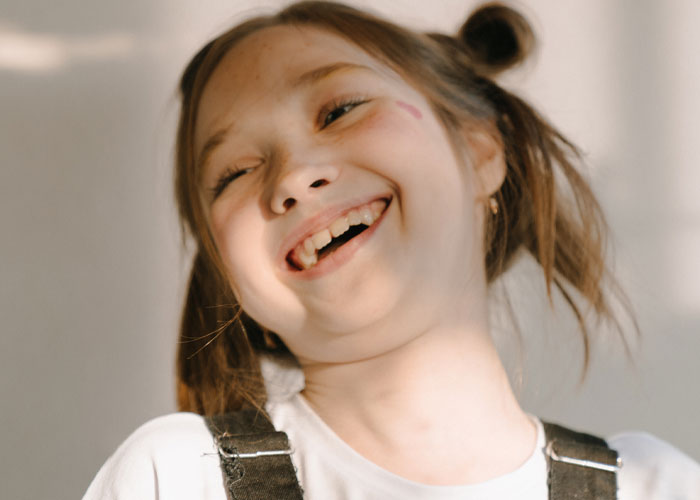
Image credits: ChrisNEPhilly
#23
Not a teacher, but:2000 students - kids playing with physical toys, when one brings a gaming console it will be destroyed by all the kids fighting for it.
2010 students - everyone has their own electronic thing to play on. Whether it's a phone, a tablet or a console.
2020 students - students feel like Londonians from Doctor Who after the earplugs have been activated. You don't feel the school socialisation vibes.
#24
Two things stand out to me. #1 so many students today are dealing with mental health issues. For example, they are so anxiety ridden they cannot function in a classroom setting. #2 Students spend so much time on phones and iPads they rarely read a book. Literacy rates....both the ability to read challenging texts and/or write sentences, paragraphs, or a cogent argument have decreased dramatically.#25
At least among middle - upper class, children are way too friendly with their parents. I don’t know what happened to rebelliousness, but I tutor and they get into college and their parents stay for a week helping them decorate their dorm, take them out to dinner, attend their sports games every weekend, and are always on the phone together.When I went to college, I was dropped off, got a hug, we were all happy to reconnect at thanksgiving or Xmas.
#26
Welcome to the results of the 1990’s self esteem movement. Kids were given awards for mere participation, and no experience in losing. Losing will always be a part of life, and kids today can’t seem to deal.#27
I have a friend's mom who is a math teacher in high school. She said she simply can't give students the same math tests she used to give years ago; students have gotten SO much worse in math. It's not because they're not smart anymore, but they have a much lower attention span, and this affects maths more than any other subject.#28
As a recent retiring high school and middle school teacher, so many students have very few interests besides video games and social media. Students are less creative and willing to discuss things in class. If you take away their phones , they are lost and anxious (many adults too).High school students don’t have any idea of what they want to do after high school, I had most of the class of 2022, graduating with out a clue of what they were going to do next.
#29
The biggest difference I've seen is that as the years progress, students become in general more tolerant/accepting, less violent, and more hooked into their phones.Also, kids are hyper-aware of fashionable trends and personal image/grooming, to the point that I'm left wondering if teenage "awkward" years even exist anymore.
#30
I'm not a teacher, but both my mother and sister are.They stated two big differences.
Social Media changed how kids behave. A lot. Way more bullying is done online now and less of it is physically violent.
Certain trends don't really exist anymore. The punk/emo stuff from the 2000's isn't present today, but there is a stronger group of Gamer/Internet kids that play Fortnight and use TikTok. Also, there are way more outspokenly gay students.
#31
Not a teacher but I can tell you that from the majority of examples presented to me, the relationship between teachers and students has gone from being one of obedience and discipline to something closer to a professional older friend (even with the older and stricter teachers)#32
I do community circles with my class and we always end with a fun question. Recently it was “most embarrassing celebrity crush?” and the kids were totally fine naming celebrities of the same gender as them and other kids didn’t react to it at all in a negative way. The only comments were like “yeah, he IS cute” or “I totally forgot about her!” I WAS FLOORED and felt about 100 years old for being so taken aback by basic human decency.#33
Somehow young kids humor in like 2017 or so all the sudden started necessitating like five layers of irony.Most trends in slang or memes are based around the idea of sounding stupid until it becomes normalized and no one thinks of it again. Yeet was like this, dabbing is sorta like this. "Vibing" is in that transitional phase where it's starting to be normalized. Heck replacing various swear words.
Anything before like 2015 was so simple, you could actually relate to the kids. What happened lol?
#34
Not a teacher, but have asked a few this question. The most common things said was one, kids seemed older then...whether it had to do with more freedom or being employing younger, kids in highschool looked like young adults, where now, many don't. They wear sports gear, and look alike, and look well, like teenagers.Making it really noticable when anyone dresses older. There are a few kids at my highschool that are so.eyimes mistaken for sub teachers by staff members that dont know them.
The second most common response was capability. They agreed that it seemed kids now are less motivated, but compared to what their grandparents or parents were doing they are actually making alot of progress, but theres so much work and it's so easy to get overwhelmed, especially with the rising rates of parents who aren't home/cant understand the new math, and larger class sizes making it challenging to aid anyone who is in fact trying to succeed
#35
Students now take pictures of things I write on the board or have on PowerPoints. Some still take notes on paper or on laptops/tablets of course, but especially for tables or data that has layouts or graphics involved, out come the phone cameras!#36
I have only been teaching for 10 years, but I truly feel that focus has dropped significantly. Those damn phones will vibrate, blink or chirp and even if the student doesn't pick it up and interact with it, they are already distracted and it takes time to refocus. It drives me crazy.#37
Believe it or not, I've actually seen a vast improvement in students over the past few years. This really started with what will be the class of 2021, though that isn't a perfect deliniator. Students before that were very self-entitled and basically exactly what we think of when we think of the term "snowflake."Students since then have been much different, however - I've noticed that they almost want to rebel against that attitude. They see it in their older siblings and in their older classmates and they don't want to be that way. They are more enterprising, more willing to buck the social order. Can't find a job that suits you? Go open your own business. Want to make money? Work hard, get an education and find something profitable.
When I first started teaching, if a student received a bad grade, they would whine and complain until someone changed it for them. Students now are taking responsibility and fixing their flaws.
Students in the past wanted so badly to be victims and tried to get offended by anything. This new generation loves being offended. They find it hilarious.
I think the traits we make fun of in millennials are dying out, and a more rugged, less offended and more enterprising generation is coming. It will be a few more years until they are out in the workforce, but I have hope for the future.
#38
I'm not a teacher but when I was in high school, as a Freshman, there were seniors that looked fully grown.When I was a senior, we maybe had 1-2 guys like that. Some tall guys but baby faces so they didn't really count. One guy was 6'5" and had a goatee. I was 6'6" and had some hair on my face, people thought I was 25 when I was 18.
But generally, the guys when I was a freshman, were all built. Most of the people in my class, if they were tall, they were skinny. And 99% of the people in my class didn't look like adults.
I also grew up when we still had rotary phones, we had those shitty computers with Kid Pix, and now I'm using a smart phone. I feel like my generation was one of the last to experience the "best of both worlds" in such a short span of time. Computers were just starting to really become popular when I was a kid.
Now everyone has a laptop for the most part, or they do s**t on their phone.
#39
My mom taught for 35 years (70’s to early 2000’s) and she noticed food allergies toward the end of her career and utilizing email as a new way for parents to avoid talking to her vs sending home notes or calling the house to discuss issues.#40
In 2000 kids did secret stuff without having to constantly text or call their parents - lots of fun just being teenagers. Teens then did not WANT to constantly communicate and hang out with parents. Now kids are constantly communicating with parents - even drinking parties are hosted by parents. It’s like parents and teens have become equals. Kids worked during 2000 but if you wanted something you save for it or ask as long as it wasn’t outrageous. Parents Weren’t just sending groups of kids to concerts with condos and “supervising” to live vicariously through their kids. In 2010 I noticed more kids reading books for fun during downtime like at the end of class or study hall. Less narcissism then I think. Kids have become kinder and more tolerant of differences since 2000 I think but even in 2000, you’d be surprised at the tolerance of teens.#41
1997: "You can have your pager back at the end of the class."2007: "You can have your cell phone back at the end of the class."
2020: "Everyone open Google Classrooms on your tablets..."
#42
One of the most disturbing differences is the sense of nihilism in preteens- "I wish I was dead" style jokes are said with frequency and in a tone that lacks the right level of sarcasm. Kids have told me they don't plan to save for the future because they don't think a sustainable future will exist (and many blame folks their grandparents age and climate change denial.) They aren't excited for their future past college in general. Most that struggle with mental illness or physical disability are fearful of their future due to insurance concerns.This is depressing as hell since all this stuff came from kids between 10-13.
#43
Mostly a heavy reliance on cell phones instead of using their own ability to problem solve#44
I've been an elementary music teacher for 25 years. Over the years, I've noticed that children have less and less ability to regulate their emotions: more tantrums, more destructive rage, more crying when challenged.We used to send disruptive kids to the office. Now when a child goes on a destructive rampage, we evacuate the rest of the class while he/she destroys the classroom. And the rest of the kids generally take it in stride.

Image credits: sommerfugl
#45
More recently, some students are really angry politically over things that previous students never saw politically. So, I teach an article about rhetoric used during the Holocaust against Jewish people to discuss language use and the rhetorical triangle. No complaints and students seemed to like it until about 2016. Then, suddenly, I started getting comments sneering about how people "want to feel oppressed" and "feel sorry for themselves" and how I'm a "brainwasher lib" for teaching it in my evaluations. It's definitely the minority of students, but the language is all very I got this from certain circles on the internet talking points.I also teach many of Thomas Jefferson's writings in another class. Never an issue before recently when some students started complaining about his writings about slaves being included because apparently that is me "bashing founding fathers of America" and "attacking American values" even though it is literally words he published and stood by and I teach a lot of his writing, of which the slavery parts are pretty minimal. Maybe 3-4 pages of 40 pages we read from him. It's just wild that teaching American historical documents from founding fathers in an Early American history class is now me "attacking America."
#46
Attention spans have reduced over time.Even the most effective teachers notice how easily distracted students become - as if their minds naturally drift toward thoughts related to social media rather than staying focused on learning.

Image credits: Back2Bach
#47
I'm not a teacher but I work with kids between 4-15. Something i notice everytime is how deep their friendships are. Its always wholesome to see how much they care about each other#48
I’m not a teacher but my wife is and she says kids these days are a lot less scared of detention/exclusion from schools. She says they need to bring back harsher punishments.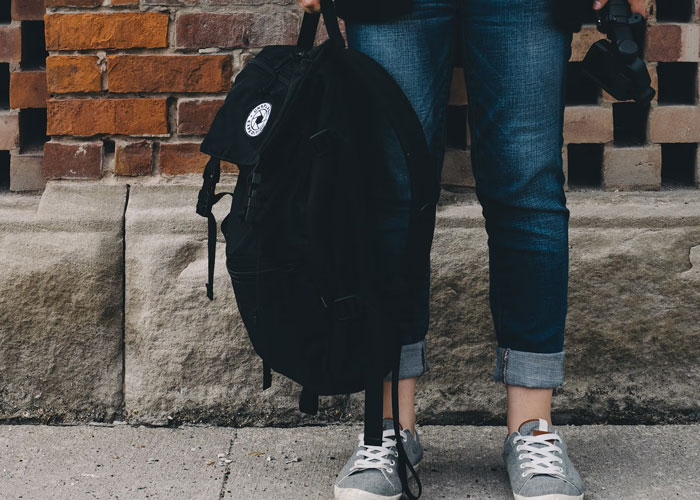
Image credits: Wheelazor
#49
I’ve been teaching for 13yrs and the biggest thing that I’ve noticed is that students have much less stamina to research and support their claims. If it’s not coming up in the first five Google hits, the answer doesn’t exist and the info they do find is “correct” because it’s on the internet.
Image credits: battlelevel
#50
i work(ed) with young children up to about 12 years of age. generally, children over the age of 5 do not know how to be bored. it’s like at that age they lose their natural curiosity and creativity and need artificial stimulation constantly.edit: just to clarify, i know this is not a brand new thing, but i definitely think the age in which ‘the spark’ dwindles is getting lower due to the growing availability of tech. i’m 22 myself so i’m hardly experienced but my observations are against my own childhood. children are innately curious, adventurous and amazing but if this isn’t nurtured, in any way that is available to the parents, it will be lost very quickly. technology is amazing too, when used effectively. :~)
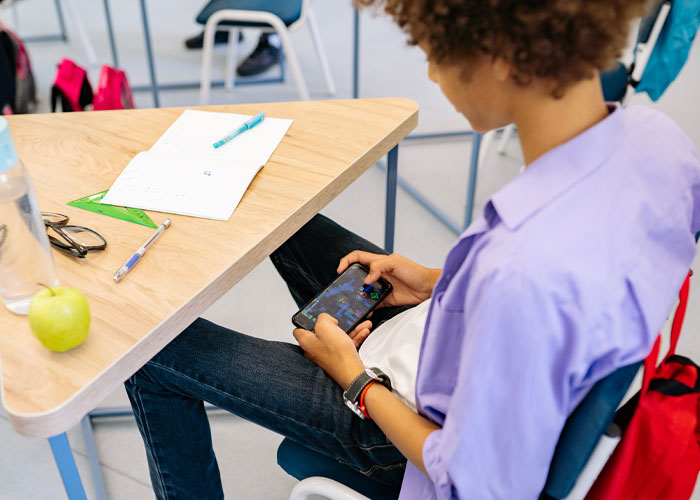
Image credits: ztaylxr
#51
Less mental endurance I think. A lot of the kids over the past few years I've noticed having very little interest in trying to work out something they don't immediately understand. Perhaps being isolated in lockdown for a long period of time plays a role here, I'm not sure.On the other hand, being based in Europe, English language ability is markedly better since streaming services became normal.
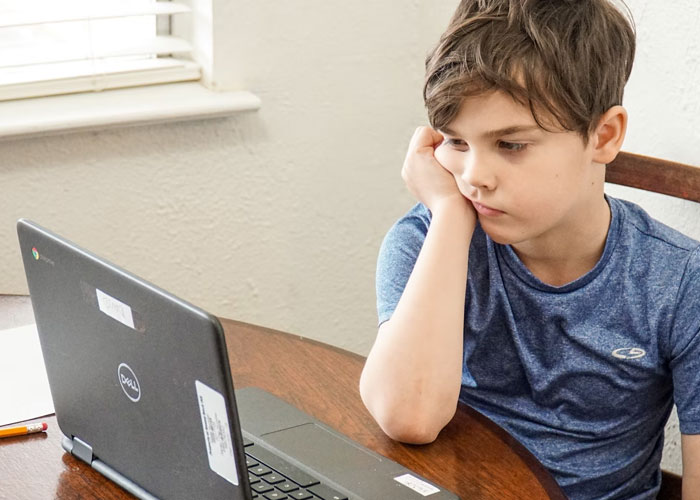
Image credits: tkcal
#52
Kids used to be more mature but less responsible and quite carefree. Kids now tend to be less mature but way more responsible and aware.#53
Have taught 13-15 year olds for 12 years and I can't say I have seen any radical changes, except one: the number of girls with mental health issues, typically in the anxiety/depression ilk. Oh, and the number of boys with mid-parts and baggy pants is through the roof.#54
Lack of owning up to mistakes#55
The difference between the children in my last class who only ever had 1 full year in school because of the pandemic and my current class who are going into their second year is mad. The first class had so many children with anxiety and mental health issues at only 7 years old. Lots missed out on basic things such as writing and reading because parents at home had limited time or resources to help them.My class now are a year below my last and they are already miles ahead of them both academically and socially/emotionally
#56
Early education (0-5) here. The two biggest things that I've noticed recently are a reduction in expressive language skills and an increase in anxiety, or anxious behaviours for longer. The children still tend to understand adults and will respond to them, but even things that we used to do to boost language such as fingerplays and action songs aren't as effective as children tend to more passively watch you sing and perform rather than join in, even when this is modelled by a second educator. We see more and more children who have trouble being dropped off in the morning or picked up in the evening in particular, but all transitions at some point, needing additional support, sometimes for years, when previously this was something most children only experienced when they were settling into the program and at drop-off.The other thing which I've been seeing for longer, over a 27 year career, is more and more children aged over three each year who do not understand how to play. They can't sit and complete a puzzle, and even when shown don't have interest in much beyond taking it apart. They can build with lego but many won't play with their creations. Sometimes children who have shown great progress in imaginative play as a two year old will have regressed from carrying around a doll and cuddling and feeding it, to undressing dolls and leaving them on the floor instead of actively playing.
#57
I’ve worked with 3-6 year olds in a classroom setting so far for about 5 years now. Our teacher has worked at this school for 40 years.From our conversations she tells me that children are generally more impatient and rude/discourteous. From my own millennial point of view, a lot of the parents I see are of millennial age and the younger parents I see tend try to be their children’s friend, as opposed to being their parents.
More tangibly though in the recent years, children’s speech has noticeably declined.
#58
Covid lockdows have absolutely wrecked a lot of kids. A lot of them have absolutely no filter. They have no time management. They have no urgency to get to class or get work done in an allotted time. It'd sad. Some of those issues have gotten better in just a year of school being back in person but a lot of them have some really bad learning loss#59
I have taught middle school for 8 years, kids are less homophobic and more aware of and accepting of other cultures due to increased visibility of people with different lifestyles online. That being said, the last few years they have been exposed to pretty horrific s**t inadvertently through use of popular media such as tiktok. I have multiple kids who saw abhorrent s**t because it was purposely labeled incorrectly or because a friend/bully sent it to them to be an a*****e.#60
In the 30 years my husband taught high school English he saw the students go from wanting to do well to not giving a flip if they passed or not. It made him so sad. He taught AP and honors. By the time he retired, they had the same attitudes as the students who didn’t care at all.#61
I've noticed a trend with students toward sheer memorization over learning anything. For instance, in my language classes on their exams, students write compositions. They get a vague topic beforehand and more specific information on the exam. Students today will plug their entire composition into Google translate, and then memorize it rather than coming up with something on the fly. I'm actually harsher on those students because they're not putting the same effort in as other students. I'm not testing their Google translate ability.#62
Helplessness from helicopter parents. Parents that bulldoze every obstacle for their kids so they don’t need to struggle in any way, shape, or form. But then my students are absolutely helpless, and the parents get mad when their kid fails.#63
When I was a kid, the most exciting day in school was when the teacher wheeled in the big tv on the cart. I teach second grade now, and there is no excitement for movie day. Also, when the students want to call home, I have them use the classroom phone (landline phone with cord). None of the kids know how to hang it up. They are only familiar with cell phones and touch screens.#64
I have not been teaching for 10 or 20 years, only for 7 years, and the change I have seen is already severe.When I started teaching, we were allowed to confiscate cellphones, and students still had some form of respect for teachers (might also just be because of the school where I was).
Now, above teaching a full syllabus, I have to try to tell the kids to stop taking selfies when I am teaching, to put away their phones and write down these important notes that will come up in the exam. To stop sharing inappropriate photos of themselves on our WhatsApp groups.
It is also terrible the amount of abuse the teachers get.
One of my colleagues got hit by a student last week.
#65
My mom is about to retire after teaching high school English for 30 years. Whenever I ask her this question, she says she can tell students’ writing quality and critical thinking skills have declined as computers and cell phones became more prevalent. I would bet there’s some truth to that.#66
Students are willing to do easy things, but if the assignment takes critical thinking or creativity, there is pushback.#67
In 2010 we used to talk about 9/11 a lot. I have one assignment where the students have to do a timeline of their lives. In 2010 9/11 always figured prominently. In 2020, students just don't talk about it at all anymore, or even know much about it, and it definitely never appears in the timeline of their lives.#68
2020 students seem to actively avoid interpersonal interaction as much as possible. They'll text friends in the class instead of speaking with them. They'll also email us during class instead of raising their hands and asking a question.#69
I'm still a student and live in Germany so the phone thingy doesn't really apply to us because, to try quoting our chancellor "The internet is still new to us". Although what is definitely changing is the awareness for social life, climate change, fashion style, etc. There also are less groups like the emos and goths. Everybody basically belongs to one big group. It might differentiate a little but not enough to split them up in to a separate group.#70
Pants used to be down now they're at their waistsStudents are generally quiter now because they don't talk to one another
Language has changed drastically. I'm trying to keep up. This is my 27th year teaching. Diets also seem to be better.
I've also had several Trans students in the past 5 years. Population is definitely,more tolerant of skin color/sexuality/gender
#71
I got my BEd in 2000 and have taught all grades and ages for almost 20+ years. I actually just came back to teaching after a few years away from it.I won't repeat what a few people here have said, but want to agree that kids do seem to have more empathy now and that it's parents more than kids that have changed. Generally, kids are always kids.
But the big change I see is just a better awareness about a whole lot of things. When I started teaching, if a kid had ADHD you and another teacher or parent talked about it all hush hush in the hallway. Now kids meet me and tell me right away, I have ADHD, or, I have anxiety, or I'm really stressed. That awareness will hopefully help them cope with life a bit better--but I do worry they're also pigeon-holing themselves. Like, if they know at 10 they have anxiety, they may never break free from it.
And that awareness extends to the planet now, too. That's what's good about YouTube and Reddit, etc--kids have access to information that matters to them. 11 year olds know about job automation, they have climate anxiety, they want to change shit... I knew about climate change in the late 80s/early 90s and felt like the only one who gave a shit and now 30 years later to see kids doing stuff like school climate strikes gives me a hell of a lot more hope than I had even 10 years ago. Go Gen Z!
#72
They struggle more with internalizing concepts and are far more passive in their learning. I truly believe that, in twenty years, we’ll look at tablet/phone time similarly to how we look at cigarette smoking today. It allows the brain to do less work.#73
I would say that kids are actually less tech-savy now. So many have phones and so forth, but are absolutely clueless now about how to use them above the minimum required level. I think that many teachers now know much more about technology than the students. I think many of us remember when teachers couldn't use tech. I think the kids are kind of the clueless ones now, at least comparatively.Screen addiction is certainly a major problem. I probably sound like someone in the 50's and 60's thinking kids watch too much TV, but I really do think that many parents just give their kids full-time unfiltered access to their phones and other stuff and kids are really unable to regulate their choices on these devices.
#74
Elementary school teacher in Illinois. So much more need in the emotional areas. Much more anxiety and social issues. Also, there is a big decline in the respect that kids show for other kids and their teachers. Parents are by and large so much more willing to make excuses for anything their kids do. They turn their homework in for their kids, demand better grades because their kids don’t like to see low grades, which leads to kids not knowing how to work hard or struggle through learning something new.#75
I actually teach at the high school from which I graduated, so this is especially interesting to me.The students drink waaaaaay more water than we did in high school. I think part of this is realizing how terrible soda is for you, especially if you're watching sugar content. When I was in high school, I remember a friend kept a 12 pack of Mountain Dew in her truck and had one every day after lunch. Students drank lots of soda and had to put Crystal Lite or some other kind of flavoring in their tap water to drink it. Another reason for this is that Hydroflasks, S'wells, Thermoflasks, Camelbaks, and good old Nalgene water bottles are all super trendy and a place students can personalize with stickers. These bottles also keep water colder, so people are more inclined to drink it. Hence, I allow them to use the bathroom when they need to because 90 minute periods + 4 cups of water = a mighty need to pee!
Cliques the way they are portrayed in teen movies don't really exist. Social groups are more fluid and based around extracurriculars, rather than popularity. Students are generally nicer to each other and their teachers.
The students aren't as materialistic as they were when I was in high school. The students aren't as interested in status symbols or brand names the way they were when I was a teenager. They don't generally like huge logos on their clothing and they don't really bully anyone if that person doesn't, let's say, have a Hydroflask water bottle, but rather a Contigo or a dollar store brand. I remember the opposite happening when I was a teenager.
Fashion trends are all over the place, but mostly break down into comfort rather than style. Mom jeans and turtlenecks or oversized sweaters are trendier than skinny jeans or hip huggers and a skin-tight henley from Hollister. On non-uniform days, the students mostly wear variations on the same outfit. Van slip-on sneakers, leggings, and a big school hooded sweatshirt.
No one wears Uggs anymore. The "cool" brands are so much different now. No one shops at Hollister, American Eagle, Abercrombie and Fitch or Aeropostale anymore. Now it's all about Brandy Melville (and the cachet of fitting in their clothes), Lululemon, Victoria's Secret PINK, Fashion Nova, Amazon and H & M. Older girls like Zara. The trendiest "it" girls go to thrift stores. A lot of them are trying to avoid "fast fashion."
#76
Aggression. Been assaulted three times in the last year. Verbal attacks. Getting told to f**k off and get f****d much more. Indifference to education. Not even bringing a book or pen to school. Still have a lot of great kids but the percentage of students that engage in the above behaviours is growing markedly.#77
Taught college freshmen as part of my PhD program, and even in that short time I’ve noticed a lack of critical thinking skills and basic problem solving among many students. My class was a writing class and we used APA format. Since there are so many resources online and we had a lot of stuff to cover, we’d teach the basics and provide resources for students to find info for their specific formatting needs. Still, students would use some extremely odd citations, even after having examples shown to them multiple times. Googling it just didn’t cross their minds for some reason. I don’t have APA memorized and I’m a published author, so idk how using Google just isn’t an automatic thought.They also seem to have a decreasing ability to recognize reputable sources. Random McRandomface’s TikTok video is not a reputable source.
A positive change, on the other hand, is that students are much more socially aware of things that are going on in the world. Idk how many of them vote, but at 18-19, they’re definitely aware of current events.
Another positive thing, which could be an artifact of the college I attend (large R1 university) is that incoming college students these days are pretty accomplished. So many of my students did a lot more impressive and interesting things than I did when I was in undergrad, so good for them!
#78
I've been a mentor in journalism for the last 10 years for my uni.Hardly representative, but I've found my mentees have become extraordanarily self-indulgent. Before, we might've talked about our personal lives at the end of sessions. But, the last two years especially, I've found the students feel comfortable derailing conversations about their work and professional ambitions to talk about themselves. It's weirdly unfocussed, and I find it difficult to bring them back from it.
They also seem to take a reflexively subversive angle on almost every topic, which I put down to lack of confidence and needing to deride what they don't understand.
As had been said elsewhere, I've also not yet had a mentee without anxiety or depression . I've also not seen a man volunteer for the scheme since the first year - and he managed to make just one appointment.
#79
So far this year students at my school have felt more engaged. It feels like the Covid days are finally passing where they would get everything excused. We had our welcome back assembly earlier this month and in the 10 years I’ve taught, I’ve never seen kids so jacked for an assembly.#80
What I see is the omnipresence of, and addiction to, cell phones where they were initially banned. I do not see a decrease in violence as others have said. What I do see is the complete embrace of surveillance society with 0 thought the implications and what's at stake.Fight in the hall? Every phone comes out and starts recording. No one tries to step in, often not even staff because they are most likely to get punished, not the kids. Congratulations, all of your most awkward school encounters will now be public; forever.
I see helicopter parents monitoring their kids 24/7 via their phone's. I see some kids on free lunch programs with $1k iPhones because no one wants the stigma of poverty. I see next to 0 respect for teachers and staff, with parents treating school like a daycare. They will take their kid's side in any conflict regardless. I can't say most of this is a change though, just an amplification of how it was when I started.
I don't see how any kid has the room to breathe, in private, and discover themselves in the current environment of instant always on feedback from everywhere. I pity them. I'm middle aged, cell phones did not exist when I was a kid, and I'm very grateful for that.
#81
More entitlement in later years. Less feeling the need to put effort in. In the UK I think that was partially driven by fees. We used to get a negative correlation between teaching support ratings and self rated achievement in our exit surveys - Spoon feeding does not help learning. (I was a university lecturer from 2003 to 2017.)#82
I graduated high school in 2000 and I'm currently a teacher at a middle school. I would say what I and my colleagues notice most are that students are frequently more disrespectful to us (and adults in general) than most kids would have dared to be 20 years ago, and that many students lack perseverance. One of the biggest complaints teachers in my school have is that students literally won't even pick up a pencil to do tasks as simple as copying fill in the blank notes because it's "too much work". However, I do believe they are generally more tolerant than most of my peers were. They are more accepting of students with special needs and disabilities. They don't call each other gay or use racial slurs. But they're still cruel to one another in other ways.#83
Can only tell on Austrian low-income/migrant students between 2010 and 2020:more violent, much more violent.
less subgroups based on trends no emos, metalheads, local variants, etc but on ethnicity
more on their phones, but less able to use them as tools, they are only used as instagram/tiktok machines
discipline and respect towards the teachers got a bit better
reading books completely, and I mean COMPLETELY vanished. finding a student at the age of 10 that has read a book outside of school is a one in a hundred chance
not very motivated, most of them know they have almost no chance to fulfill their dreams (become a rich youtuber/influencer/sports star) so they dont even try
